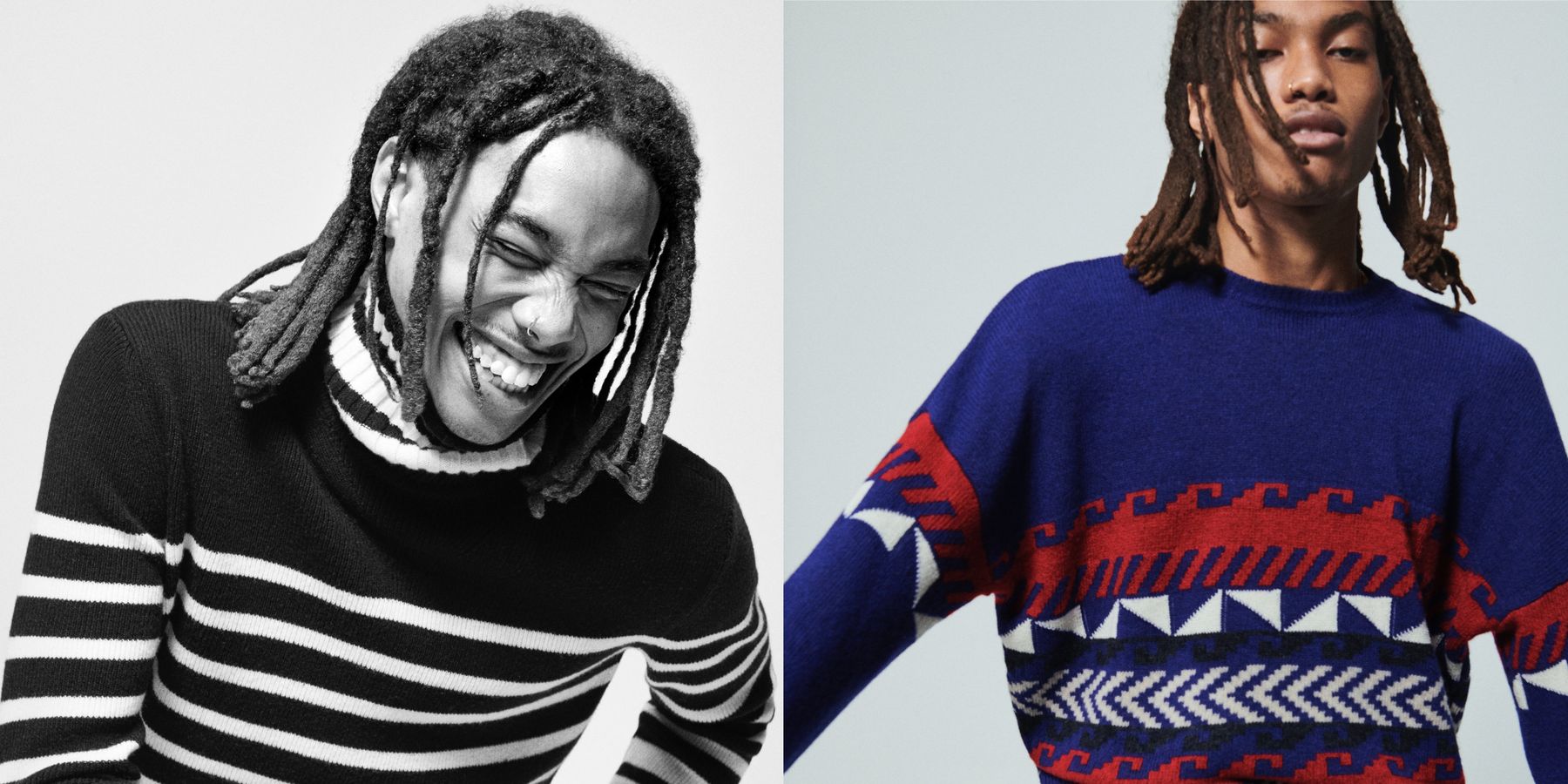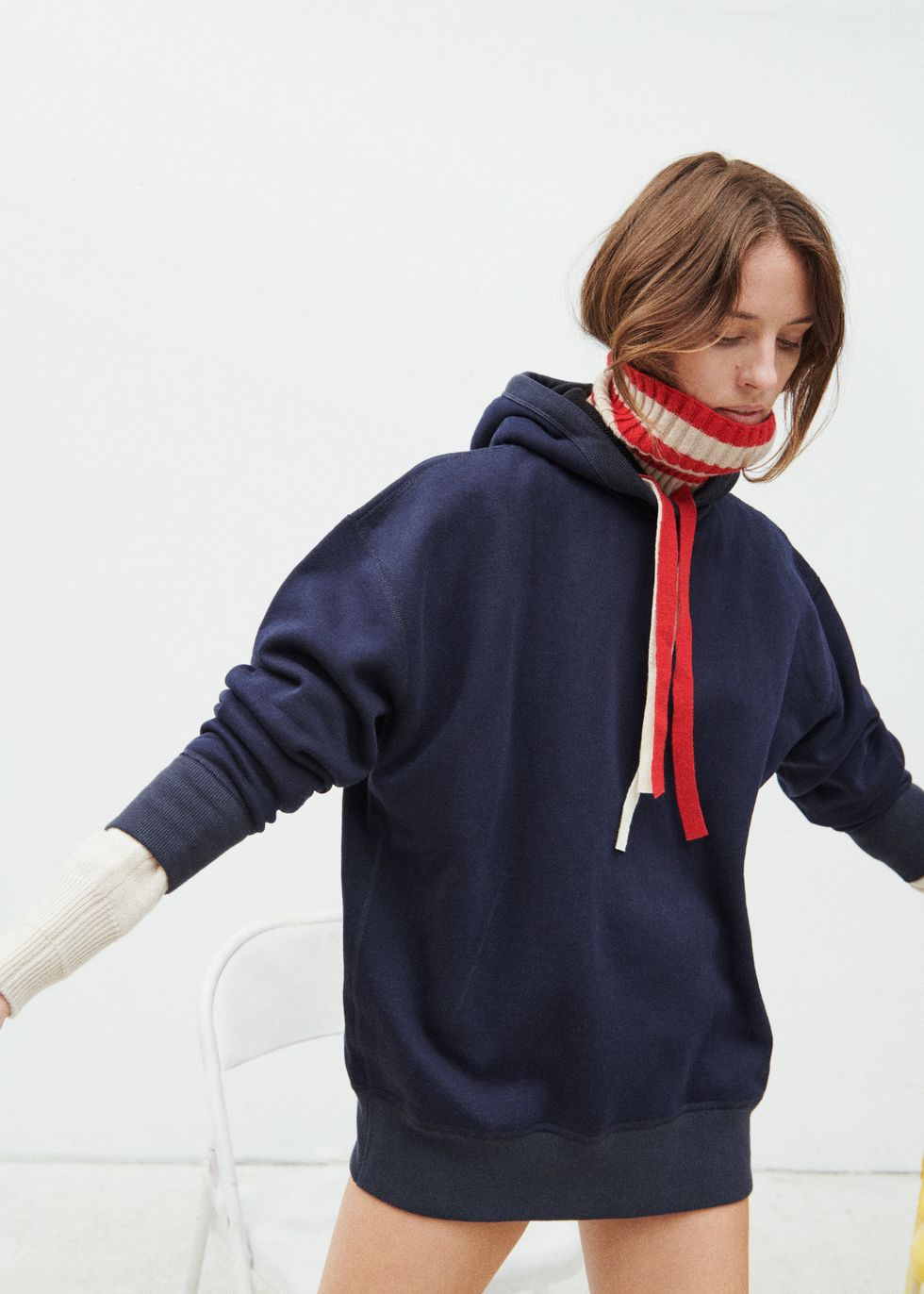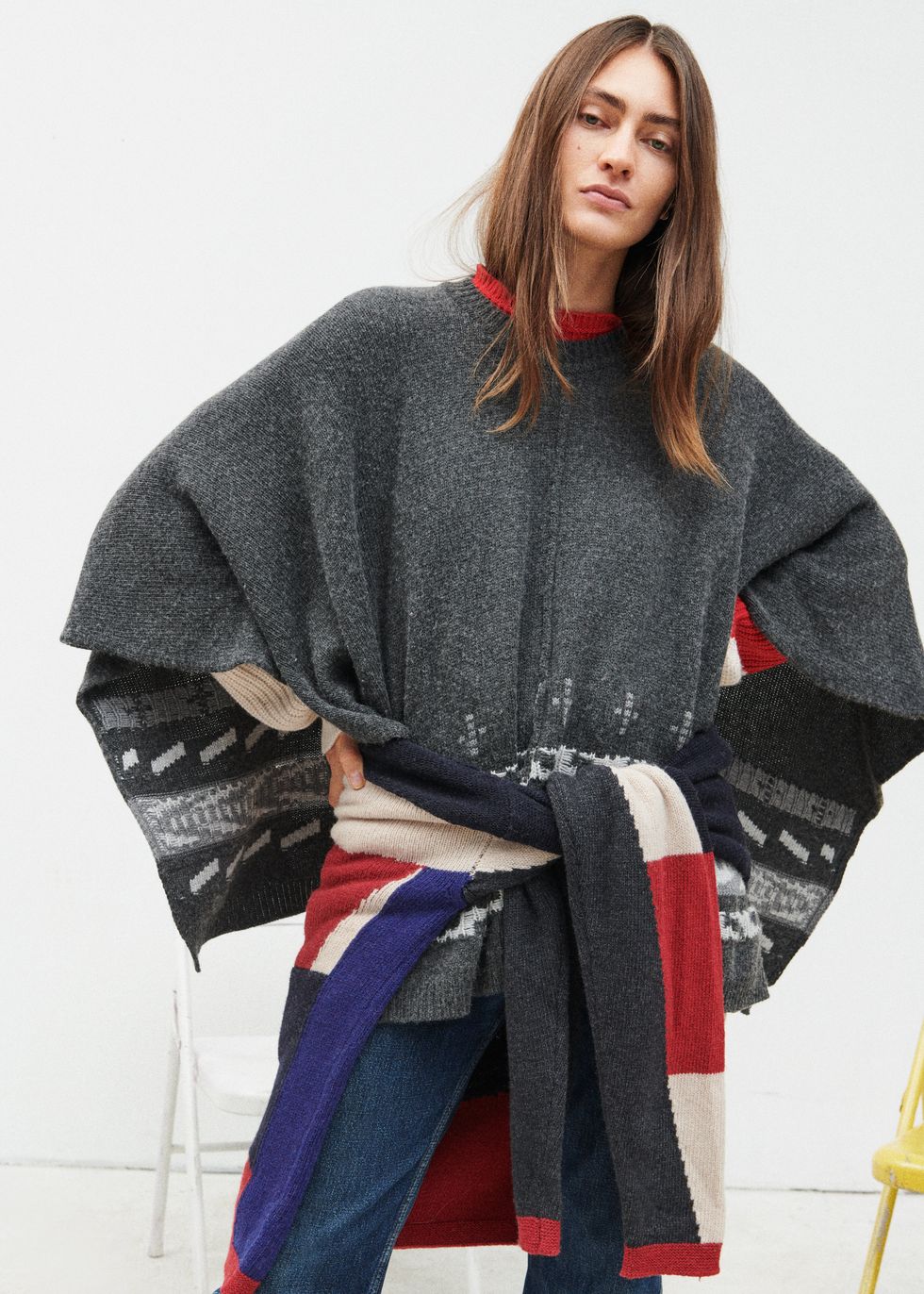
Fashion
The Fashion Collective Changing the Conversation Around Knitwear
by Dylan Kelly
23 November 2020

New York-based brand Paradis Perdus (no, not the Christine and the Queens song) is determined to redefine the future of knitwear with sweaters meant to last a lifetime. Designed by a French-born, NYC-based collective of fashion veterans — each of whom have worked on design teams for the likes of Lanvin, Isabel Marant and Mansur Gavriel — the label started out as a pipe dream a few years ago. However, the confines of lockdown during the pandemic pushed the like-minded creatives' plans into motion, inspiring them to cultivate a signature design aesthetic without contributing to the industry's high levels of pollution.
"We've done a lot of research into sustainability and the rampant greenwashing in our industry," said co- founder Thomas Poli. "By sourcing the highest-quality fibers, working with the right partners, and educating our customers, we want to show that it is possible to create something new, express our voice and build a brand while being extremely respectful of the Earth."
For the newly launched brand, this commitment means strictly using 100% recycled cashmere, wool and cotton, and working directly with factories to ensure the lowest possible carbon footprint. Paradis Perdus' ultimate goal is to provide customers with full transparency on a given design's sustainable production process, so the team created QR-code care tags that link to a website explaining each certification, along with a "100% recycled" tag that accompanies the brand's iconography on each piece.

As for the designs — which are made in Italy and Portugal — the designers have infused traditional French tailoring practices with classic high-fashion silhouettes from the sixties and seventies, all the while delving into the future with recycled materials. Knitwear, by definition, is rooted in comfortability; thus, Paradis Perdus' wardrobe of sweaters is decidedly non-binary, in both fit and fabrication. And, because the brand strives for a sustainable closet, they have created long-lasting designs in every style — including Breton, Fair Isle, novelty, and classic cashmere, with a color palette consisting of cream, navy, burgundy, and grey.
PAPER spoke with Thomas Poli about the brand's origins, the debut collection's inspiration, and the future of Paradis Perdus' sustainable commitment. Read what the co-founder had to share, below.
What ignited the idea to collectively establish Paradis Perdus?
Paradis Perdus has always been an idea in the back of our minds, but we did not want to enter the market as just another sustainable brand. We took time to study the real impact that the fashion procurement line has on the environment, and this, combined with our collective experience in the industry, has been alarming. While defining sustainability is complicated, our approach is to have as little of an impact on the planet as possible.
Where did you draw inspiration for your debut collection?
Our inspiration comes from our childhoods in the late 1980s and early 90s. Our goal with this first collection was to build out an ideal wardrobe with pieces we wanted to find. This is in combination to pieces we procured during our travels (when traveling was easier), which we wove into our original inspiration.
In terms of fabric, are there any overarching themes with this collection?
The materials we use have to be 100% recycled, which clearly limits the possibilities of where we can source from, but it's great. It allows us to create based on what fits our environmental target instead of the other way around. We have developed some amazing new fibers with our mill, including a wool blend, cotton and wool mix, as well as cashmere. We are playing with the amount of plies and the thickness or lightness of the knits, which allows us to offer more classic styles with a twist, as well as bolder and more graphic silhouettes.

Having all worked at various French fashion houses prior to Paradis Perdus, what does your design process look like?
Our process is very organic. It comes from a lot of mockups and swatches we create internally and try on in various ways. Sometimes we move on for a few days and then come back to something, and if we're excited when we revisit it, we know there's something there to pursue. We create using more of a patchwork pattern, which allows for better conversation and back and forth, rather than a monologue.
How are you planning to implement your sustainability goals?
This is at the core of Paradis Perdus. By starting with sourcing or developing 100% recycled materials, the offerings of fabrics becomes greatly reduced. But thanks to our design team and amazing manufacturers, we are able to create long-lasting and high-quality novelty stitches, color contrasting, bold graphic prints, jacquard and intarsia within this tight frame. We purposefully limit ourselves to materials with the least environmental impact, and still are able to produce garments you wouldn't be able to tell were developed using a different process than similar, high-quality brands. Sustainability, high quality and low impact are possible, you just need to impose it.
How would you describe the aesthetic of the brand?
Fun, playful, graphic, cheerful — we try to think of our sweaters as candies.
Who are you designing for? Who is the Paradis Perdus clientele?
We started originally designing Paradis Perdus for us and our friends. We are very inclusive in our design process and wear our garments as soon as we receive prototypes. This allows us to wear-test and get feedback from each other and friends — it's really a conversation. We don't want people to think Paradis Perdus is only for those who are interested in climate and the environmental impact of the fashion industry, but rather think of this as the new norm moving forward. It's time for everyone to question what they are buying, who they are buying it from and where it comes from.
Paradis Perdus is available to order at www.paradisperdusnyc.com on November 30 and will arrive on Net-a-Porter beginning December 14. With 17 pieces in total, prices range from $395-895 for knitwear and $110-295 for jersey.
Photos courtesy of Paradis Perdus/ Annie Powers